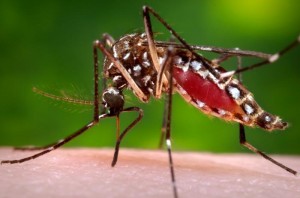
Mosquitos are one of those pests often seen as a minor annoyance, easily dealt with a quick swat or some bug spray. However, in tropical countries like Brazil, the eradication of mosquitos that carry dangerous pathogens like dengue and yellow fever is far less simple a task. A recent study conducted by scientists at the Instituto Oswald Cruz in collaboration with the laboratory of Jeffrey Powell, Yale Professor of Ecology and Evolutionary Biology, sought to explain the resurgence of the mosquito Aedes aegypti in Brazil after it was previously considered eradicated after a massive effort by the Pan-American Health Organization. It was found that the mosquitoes in question, rather than reappearing from former populations in Brazil, came across the borders of neighboring countries.
In order to assess the origin of the resurgence of Aedes aegypti, researchers collected eggs at 11 sites across Brazil and in neighboring countries. They then analyzed variation among 12 microsatellite loci (short, repeating sequences of DNA commonly used as genetic markers in population genetics studies) to examine the spatial genetic distribution of Brazilian Aedes aegypti. Analyses showed that mosquitos in Brazil cluster genetically in two distinct groups, one to the north and one to the south and east. Furthermore, a comparison with mosquitos from locations outside Brazil showed that the southeastern Brazilian group clusters strongly with mosquitos in the Caribbean, and the northern group with mosquitos from Venezuela, and Central and North America.

These findings thus support the hypothesis that mosquito reappearance in Brazil is likely not due to incomplete eradication of existing populations, but rather due to infestation from populations in neighboring countries. Furthermore, the implications of these findings are important for the management of Aedes aegypti and its associated diseases. Aedes aegypti is the main vector of dengue fever in Brazil, which experiences dengue fever at a rate ten times higher than other South American countries. Understanding the genetic variation and makeup of Brazilian mosquitos is essential to the development of targeted vector control methods, with an ever-increasing number of these strategies being genetically based. By determining the origins of the mosquitos, the researchers were able to provide insight into both the efficacy of Aedes aegypti eradication in Brazil and the genetic structure of a complicated and ever-evolving vector of disease.
